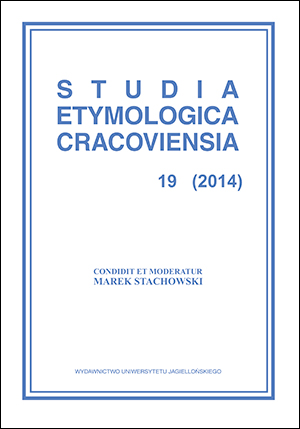Semantische Entwicklungen bulgarischer Turzismen
Semantic developments in Turkish loanwords in Bulgarian
Author(s): Corinna LeschberSubject(s): Language and Literature Studies
Published by: Wydawnictwo Uniwersytetu Jagiellońskiego
Keywords: etymology; Turkish; Bulgarian; semantics; Balkan languages
Summary/Abstract: Using the example of Bulgarian colloquial words with a Turkish origin, we trace their semantic development, taking the semantics of the etymon as a starting point and analyze the meaning of this loan in Bulgarian and in some of the neighbouring languages, such as Rumanian, Greek, Albanian and Serbian. For this purpose, we look at the following Bulgarian words: bakšìš, beljà, bìča, bimbàec, brakmà, čarăkčìja, čaršilìja, češìt, džumbušlìja, fukarà, gèle, git, kušìja, manàf, mušamà, siktìr, tajfà, and their derivatives. Besides written lexicographical sources we also use authentic material from sociolinguistic interviews (using the methodological approach, as described in Leschber 2007: 42f.). In doing this, we can show the embodiment/ rootedness of these words in traditional customs, in the history, slang, and complex loan history of every single word, as their semantic development is often rather independent from the original meaning of the lexical loan.
Journal: Studia Etymologica Cracoviensia (SEC)
- Issue Year: 19/2014
- Issue No: 2
- Page Range: 95-115
- Page Count: 21
- Language: German

